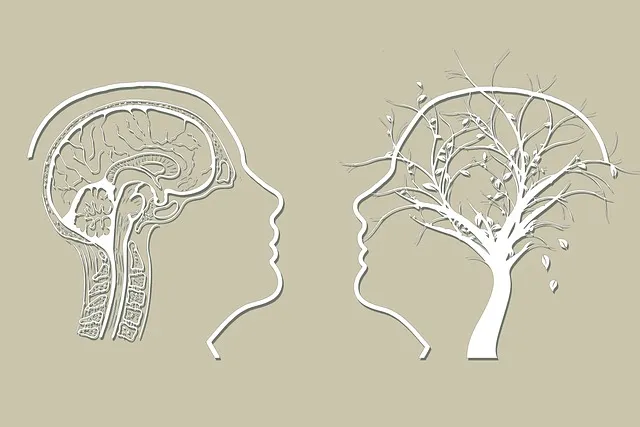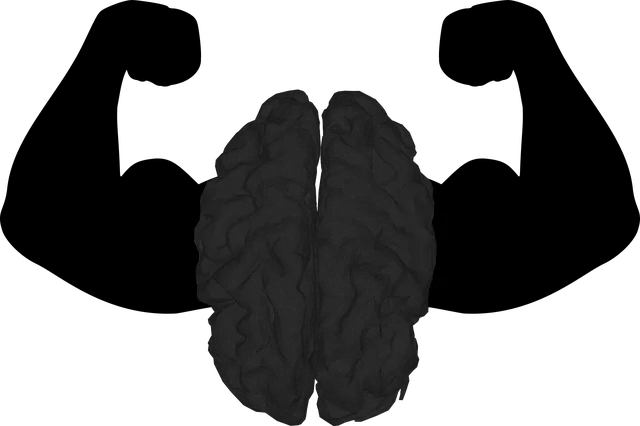In a world demanding accessible mental wellness solutions, mobile apps are emerging as game-changers, especially in light of the global health crisis and time/location constraints with traditional Kaiser Permanente centers. These apps offer convenient, discrete support for emotional regulation skills, cater to diverse needs like mindfulness exercises, and integrate professional services through awareness campaigns. The Parker Kaiser Permanente Mental Health Center's positive reviews highlight its exceptional care, innovative programs, and holistic approach combining modern amenities with individualized treatment. For effective mental wellness apps, addressing user needs through tailored features like mood tracking, personalized mindfulness, and integrated video therapy is crucial. Integrating evidence-based therapies, inspired by centers like Kaiser Permanente, builds trust and makes professional support more accessible. Market analysis and user feedback drive app advancements, ensuring solutions cater to diverse mental health needs and contribute to better overall outcomes.
In today’s digital age, mental wellness apps are becoming indispensable tools for managing stress, anxiety, and depression. With a growing demand for accessible mental healthcare solutions, understanding the need for effective apps is crucial. This article explores the rising trend of mental wellness app development, focusing on evidence-based therapies and user experiences. We delve into key features, analyze market insights, and highlight Kaiser Permanente mental health center reviews from Parker to guide developers in creating impactful digital platforms that enhance overall well-being.
- Understanding the Growing Need for Mental Wellness Apps
- Kaiser Permanente Mental Health Center Reviews: A Comprehensive Look
- Key Features to Consider for Effective Mental Wellness App Development
- Integrating Evidence-Based Therapies in Digital Platforms
- Market Analysis and User Feedback: Shaping the Future of Mental Health Apps
Understanding the Growing Need for Mental Wellness Apps

In today’s fast-paced world, the demand for accessible mental wellness solutions is on the rise, as people increasingly recognize the importance of emotional well-being. This shift in awareness has been catalyzed by various factors, including the ongoing global health crisis that has brought mental health issues to the forefront. The traditional approach of seeking help from a Kaiser Permanente mental health center, as evidenced from reviews, while effective, may not be suitable for everyone due to time constraints, geographical barriers, or personal preferences. Thus, mobile apps have emerged as a game-changer in the mental wellness space.
Mental wellness apps offer a convenient and discrete way to support users’ emotional regulation skills. They cater to diverse needs, from providing mindfulness exercises and therapy sessions to facilitating connections with like-minded individuals through online communities. As public awareness campaigns gain traction, these apps are increasingly being developed not only as stand-alone tools but also as complementary resources for professional mental health services. This integration has the potential to revolutionize access to care, especially for those who may not have otherwise sought assistance.
Kaiser Permanente Mental Health Center Reviews: A Comprehensive Look

The Kaiser Permanente Mental Health Center in Parker has garnered significant attention due to its comprehensive approach to patient care and innovative services. Reviews highlight the center’s state-of-the-art facilities, a diverse range of mental health professionals, and an emphasis on personalized treatment plans. Patients appreciate the collaborative environment that fosters open communication and encourages active participation in their emotional regulation journey.
In addition to traditional therapy sessions, the center offers unique programs such as mindfulness workshops, stress management seminars, and support groups tailored for specific demographics. These initiatives complement the standard of care, equipping individuals with valuable burnout prevention strategies and risk assessment tools commonly used by mental health professionals. The holistic approach ensures that patients not only address their immediate concerns but also gain long-lasting coping mechanisms to navigate life’s challenges effectively.
Key Features to Consider for Effective Mental Wellness App Development

In developing a mental wellness app, incorporating key features that cater to users’ diverse needs is crucial. According to Kaiser Permanente mental health center reviews Parker, effective apps should include tools for tracking mood and symptoms over time, offering mindfulness exercises tailored to individual preferences, and providing access to professional support through integrated chat or video therapy sessions. Incorporating features like these can help users cultivate Mind Over Matter principles, fostering resilience and self-care practices that are essential in managing mental health effectively.
Additionally, developers should consider integrating risk assessment tools to monitor users’ well-being, especially for mental health professionals who face high burnout rates. These assessments can help identify early warning signs of distress, enabling timely interventions such as guided relaxation techniques or alerts to seek professional help. By addressing these aspects, mental wellness apps can become powerful resources in promoting holistic mental health and preventing burnout among both users and professionals.
Integrating Evidence-Based Therapies in Digital Platforms

Integrating evidence-based therapies into digital platforms is a strategic approach that mental wellness app developers can adopt to enhance user experiences and outcomes. Apps inspired by leading institutions like Kaiser Permanente, known for its comprehensive mental health center reviews, can leverage scientific research in cognitive behavioral therapy (CBT), mindfulness practices, and other effective interventions. By incorporating techniques validated through rigorous studies, these apps not only offer reliable support but also foster trust among users seeking solutions for stress management and burnout prevention strategies for healthcare providers.
This integration goes beyond simply providing information; it enables personalized experiences tailored to individual needs. For instance, incorporating mental health policy analysis and advocacy into app design can ensure that users stay informed about resources available to them, encouraging proactive engagement in their mental wellness journeys. Such apps have the potential to revolutionize access to care, making evidence-based practices more accessible and potentially impactful than traditional therapy sessions, especially for individuals who may face barriers to seeking professional help.
Market Analysis and User Feedback: Shaping the Future of Mental Health Apps

Market analysis and user feedback play a pivotal role in shaping the future of mental health apps. By examining trends within the growing market, developers can identify gaps and opportunities to create more effective solutions that cater to diverse needs. According to Kaiser Permanente mental health center reviews, Parker, understanding user preferences and pain points is crucial for app success. Incorporating features like personalized therapy plans, mindfulness exercises, and emotional intelligence tools has shown significant promise in improving Mental Health Awareness and Stress Reduction Methods among users.
User feedback provides valuable insights into the app’s usability, engagement, and impact on mental well-being. By actively listening to user suggestions and complaints, developers can iteratively improve their applications, ensuring they remain relevant and beneficial. This continuous improvement cycle not only enhances user satisfaction but also drives innovation in the mental wellness app space, ultimately contributing to better overall mental health outcomes.
Mental wellness apps are transforming access to care, as evidenced by the growing demand and positive impact initiatives like the Kaiser Permanente Mental Health Center in Parker. By integrating evidence-based therapies and leveraging market insights from user feedback, developers can create effective tools that support mental health and well-being on a global scale. As technology advances, these apps have the potential to revolutionize mental healthcare, making it more accessible, affordable, and personalized for individuals seeking support.






